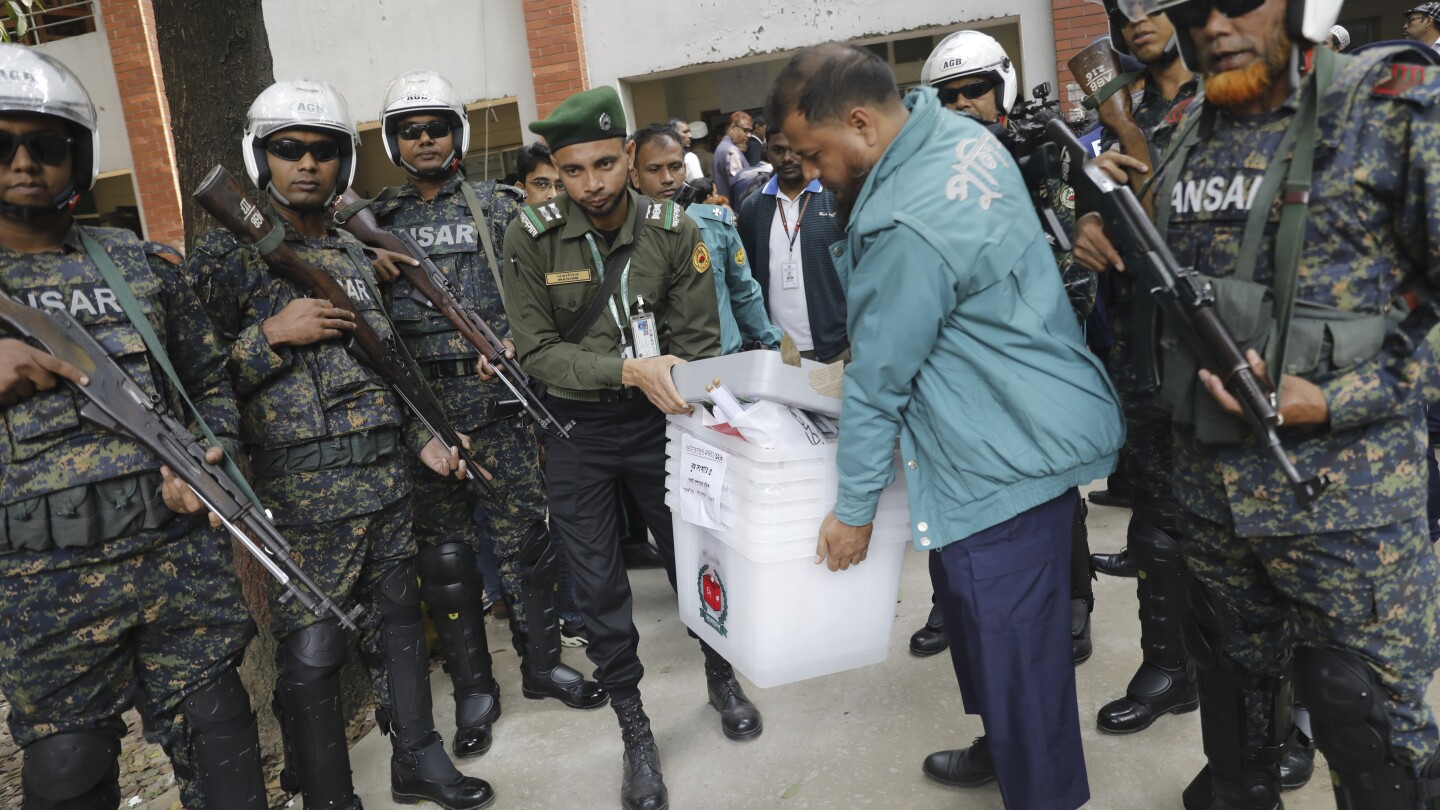DHAKA, Bangladesh (AP) — Bangladesh’s main opposition party on Saturday started a 48-hour general strike on the eve on a general election, calling on people to boycott the vote because it says the government of incumbent Prime Minister Sheikh Hasina can’t guarantee its fairness.
Hasina is seeking to return to power for a fourth consecutive term. The main opposition Bangladesh Nationalist Party, led by former premier Khaleda Zia, has vowed to disrupt the election through the strike and boycott.
On Saturday morning, a small group of party supporters marched across the Shahbagh neighborhood in the capital, Dhaka, calling on people to join the strike. Another rally by about 200 left-wing protesters took place outside the National Press Club to denounce the election.
The Election Commission said ballot boxes and other election supplies had been distributed in preparation for the vote on Sunday in over 42,000 precincts. There are more than 119 million registered voters.
Ruhul Kabir Rizvi, a BNP senior official, repeated his party’s demand for Hasina to resign, calling the election “skewed.”
“The government is again playing with fire. The government has resorted to its old tactics of holding a one-sided election,” he said.
Campaigning in the nation of 169 million people has been marred with violence, with at least 15 people killed since October.
Chief Election Commissioner Kazi Habibul Awal told reporters on Saturday that the parliamentary election would be free and fair, adding, “We want our election to be observed not only nationally, but internationally as well.”
Responding to questions on the main opposition shunning the vote, Awal said that had the BNP participated, the election would have been “more competitive” and “more festive.” He acknowledged that the recent violence may have a negative impact on voters turning up on Sunday.
On Friday, an apparent arson on a train in the capital, Dhaka, killed four people. Mahid Uddin, an additional police commissioner with the Dhaka Metropolitan Police, said the fire was “clearly an act of sabotage” aimed at scaring people ahead of the election. He did not name any political party or groups as suspects, but said police would seek those responsible.
Foreign Minister A.K. Abdul Momen said in a statement Saturday that the timing of the attack, just a day before the election, was meant to hinder the democratic process. “This reprehensible incident, undoubtedly orchestrated by those with malicious intent, strikes at the very heart of our democratic values,” he said.
Local media reported arsons targeting at least five polling stations outside Dhaka since Friday, with police calling them acts of sabotage.
The Election Commission has asked authorities to increase security around polling stations.
Faruk Hossain, a spokesman of the Dhaka Metropolitan Police, told The Associated Press police had reinforced security across Dhaka and that railway transportation was back to normal following Friday’s attack.
Bangladesh’s increasingly polarized political culture has been dominated by a struggle between two powerful women, Hasina and Zia. Bangladesh is a parliamentary democracy but has a history of military coups and assassinations.
Zia, head of the BNP, is ailing and currently under house arrest. Her party says the charges were politically motivated, an allegation the government denied.
Tensions spiked since October when a massive anti-government rally demanding Hasina’s resignation and a caretaker government to oversee the election turned violent. Hasina’s administration said there was no constitutional provision to allow a caretaker government.
Critics have accused Hasina of systemically suffocating the opposition by implementing repressive security measures. Zia’s party claimed that more than 20,000 opposition supporters have been arrested, but the government said those figures were inflated and denied arrests were made due to political leanings. The country’s attorney general put the figure between 2,000-3,000 while the country’s law minister said the numbers were about 10,000.

